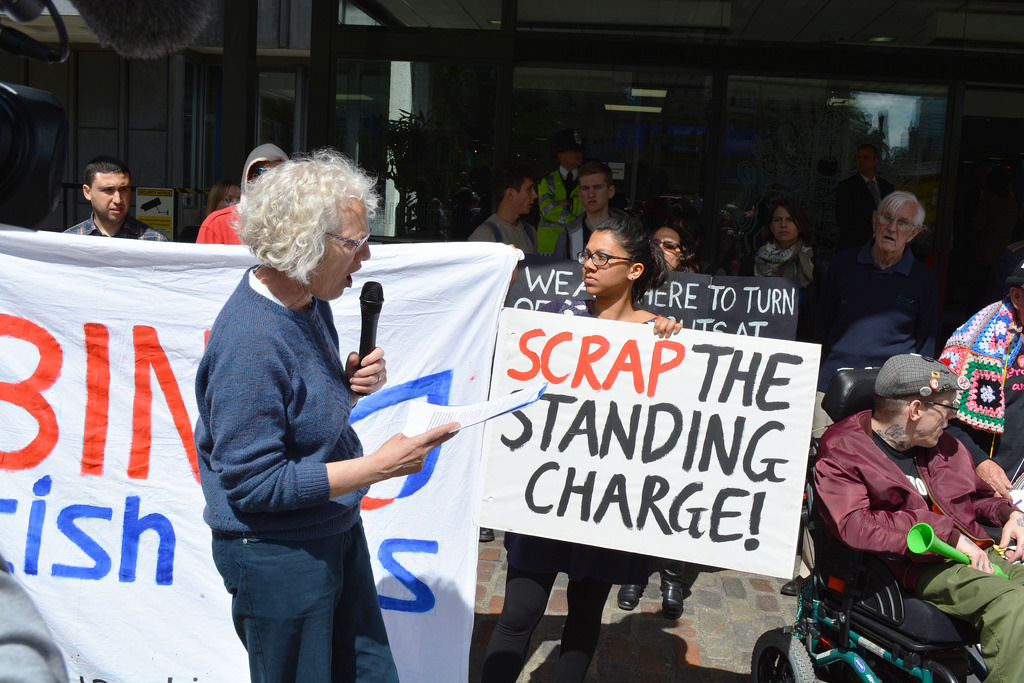Standing charges

Standing charges mean we are forced to pay up to £340 before we can buy any energy at all.
This hits those of us with the lowest incomes and lowest energy use most. However much you cut back to avoid running out of money, you still have to pay standing charges. They can be more than the cost of the energy you actually use! Two million homes with prepayment meters get cut off each year as they cannot even afford the high standing charges Ofgem allows.
Getting rid of cruel standing charges on energy bills is a long-standing objective of Fuel Poverty Action, and a key part of Energy For All.
Ofgem uses standing charges to make us all pay for everything from the inflated overheads of energy firms, to the costs of rogue firms going bust. Some costs seem more reasonable, like the cost of operating the network, but now we know even these have recently been artificially inflated by £4 billion. Not to mention that the high costs of upgrading electricity networks to cope with higher usage should not be borne by those who use less.
We’ve built support from many other organisations and mobilised thousands of our supporters to
sign petitions and write to Ofgem, government ministers and MPs to hammer home the unfairness of energy standing charges. More details here.
This sustained pressure finally forced both Ofgem and the two main parties to admit that reform and reductions are needed. Standing charge reform was added to Conservative and Labour election manifestos in 2024, and Ofgem has decided to require all energy firms to offer a no standing charge option.
This could include a rising block tariff with cheaper pricing for essential use – similar to part of Energy For All. However, this is only a small win because it will allow all costs to be shifted to unit rates, so the actual saving for low users will be small.
So we will continue to push Ofgem and the Government to go further and strip out the huge excess costs, profits and government levies buried by Ofgem and energy firms in standing charges. Billions of pounds’ worth of excess operating costs and profits generated throughout the energy system, from retail to distribution and transmission, remain hidden in our bills. The work to identify them must be done faster to help fund the removal of standing charges. Energy distribution has some of the highest profit margins in the UK.
Not only are standing charges cruel, they are also bad economics and bad for the environment. Standing charges penalise energy saving and subsidise energy waste. The marginal pricing system of electricity means that higher usage forces us to use more expensive and dirtier gas generation, as well as escalating the need for expensive network upgrades. Fundamental pricing reform is urgently needed and we will push the Labour Government hard to deliver on its promises of cheaper and fairer energy pricing.



